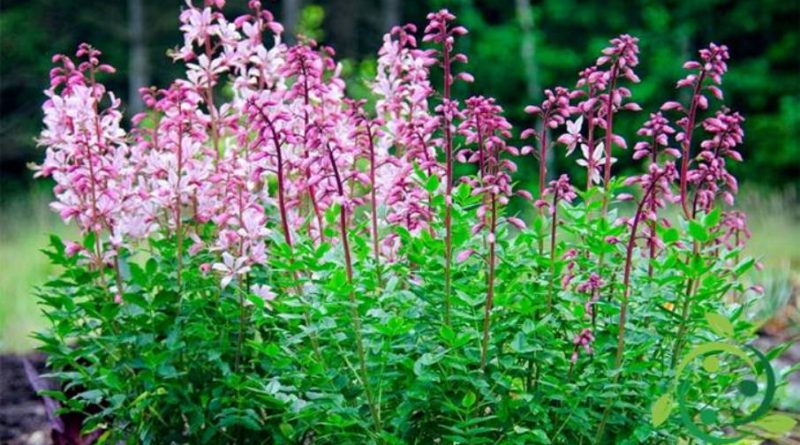Properties and uses of the Dittamo
Properties and uses of the Dittamo
The dittamo or frassinella or limonella (Dictamnus albus L., 1753) is a spontaneous and aromatic perennial shrub species of the Rutaceae family. It is a ginger-like and fragrant lemon plant that forms showy inflorescences of 5-20 white flowers with pink streaks. It frequents the rocky, sunny and arid slopes and the clearings of the thermophilous woods. The name of frassinella is due to the shape of its leaves that closely resemble that of the ash tree. Alternatively, the name of limonella is also used because its leaves, when rubbed, give off an intense scent similar to that of lemon. In this sheet we see properties and uses of the Dittamus, a plant whose term derives from “Dikti” (name of a mountain on the island of Crete), and from “thamnos” (shrub). The dictator is nominated by Baudelaire in the poetry Tout entière.
The dittamo is very fragrant and produces many essential oils and is also a medicinal herb and medicinal herb.
The species is present in Europe, in the temperate zones of Asia, in Siberia and in the Caucasus, while in Italy it is quite rare; it is found in the sunny and arid woods, on a hillside, where oak and chestnut trees usually thrive. Vegeta between clearings and bushes or on the edge of the paths, and is widespread in suitable habitats of the entire Italian peninsula.
The Dittamo takes a series of local names also due to the experiences of use of populations. It is also called the Dittamo of Crete, Greek Dittamo, oregano, Dittamo, Dittamo di Candia or origanum of Crete.
The Dittamo is excellent for the treatment of the stomach, for the treatment of wounds, to cure headaches, etc. In fact, in ancient times the Dittamo was considered a panacea for all ills: it was used to treat the stomach, gastric ulcers, spleen problems, rheumatism and even infertility. The dictator was often used as an ingredient in many spirits distilled in the monasteries.
The properties of Dittamo are innumerable: rich in antioxidants, it is able to increase appetite, it is diuretic, digestive, antispasmodic, astrigent and soothing. It also has antifungal, antibacterial and anti-elven properties, so much so that since ancient times in Greece it was used as medicine. In full compliance with European legislation, the dittamo is recognized as traditional medicine and its use as an aromatic herb is permitted.
In the gastronomic field the use of the dittamo is more problematic because of its too intense perfume and the taste too strong. However, through a search for the right amounts and quantities, you can use the leaves, inflorescences and sprouts in different meat and fish dishes and in different desserts. Using very few grams of this officinal herb, the experience of using the dictator in the kitchen is surprising.
The return to alimurgical and medicinal plants allows new food uses in line with food and environmental sustainability. In fact, the dittamo is an endemic plant of some areas of Greece, so returning to cultivate it helps to preserve the conditions of a specific habitat. At the same time, the concepts of localization and regionalization are examined, which are then important pillars of food sustainability. Therefore, the phytotherapic remedy becomes an innovative ingredient in the kitchen, giving a boost to the local economy and also to more ethical forms of cultivation and consumption.
In any case, the use of a medicinal herb, used in herbal medicine, in daily consumption, although there are no contraindications, should be done through small quantities, especially in the case of pregnancy or in the case of children.

